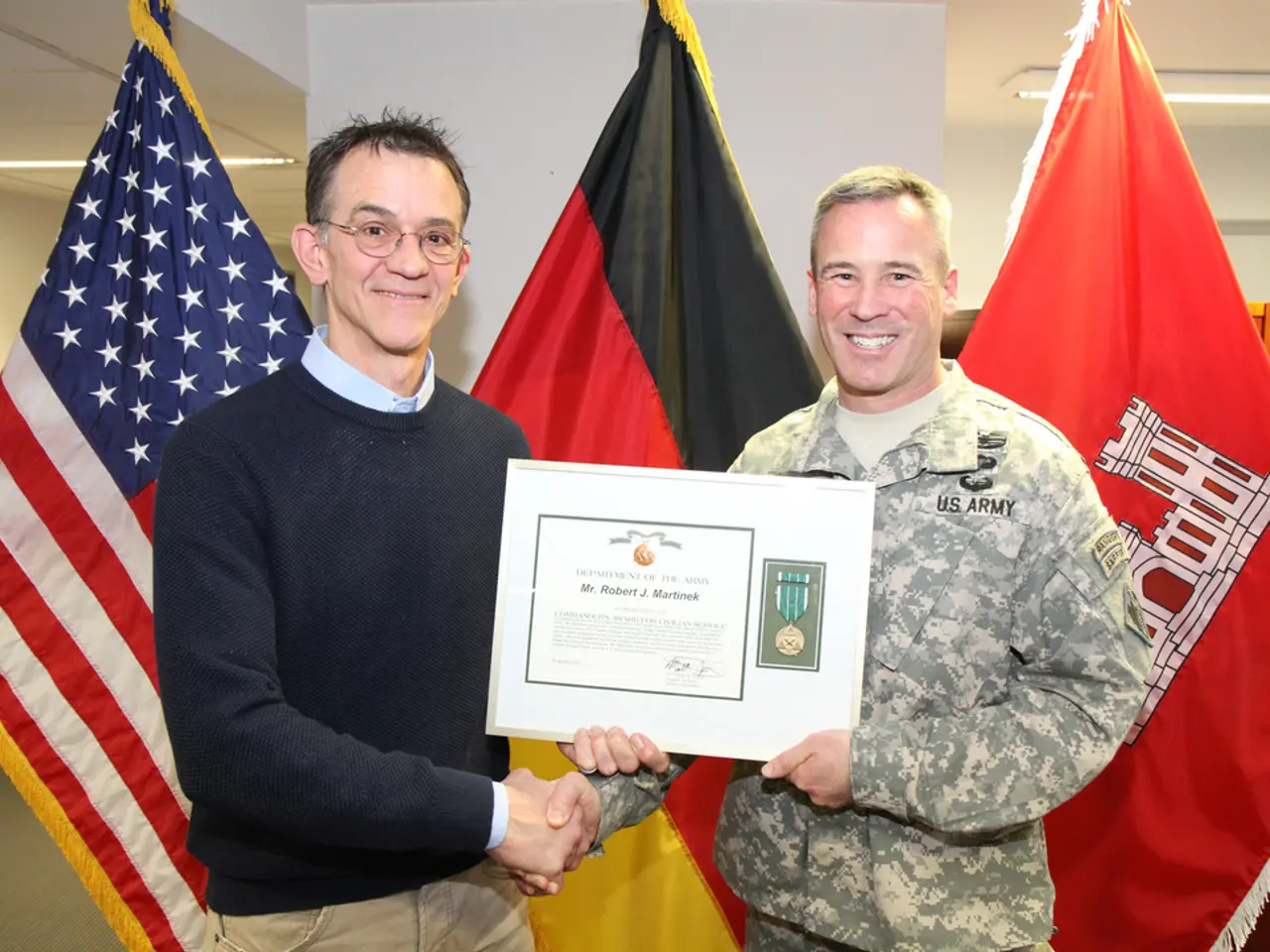DGB's website chairman, Guido Grüning, continues to hold his position.
Germany's Unions Stirring Up Change Amid Crisis
A trio of trade union bigwigs - Filip Fischer (ver.di), Mathias Hillbrandt (IG Metall), and Holger Gruening (DGB chairman) - are leading the charge to regain citizens' trust in state institutions and democracy, all while tackling the biggest crisis of our time.
The rise of new sectors, such as the platform economy, has brought about a dismantling of co-determination, leaving many employees in the lurch. "Research shows that trust in democracy is highest where co-determination and collective agreements contribute to job security," the DGB highlights. Sadly, the number of employees covered by collective agreements is dwindling, with both the state government and local politics seemingly indifferent to this trend.
"Public contracts awarded to companies with inadequate collective bargaining coverage is, in essence, a political scandal," states Fischer, who represents employees of the city administration at ver.di.
IG Metall's Hillbrandt urges citizens to stand up for justice and change. "Our colleagues with international family backgrounds are essential. Without them, neither our industrial enterprises nor our administrations would function," he emphasizes, touching upon migration as a solution in trade union work and committees.
The unions applaud movement in investments, noting that the so-called special assets (debts made for future investments) must reach the people. "They must feel that something is happening again, that investments are being made and problems are being solved," they insist.
Municipalities, these leaders believe, play a vital role in society, as seen on the hospital, bus, street, and playground. This essential infrastructure comes with responsibility, and the unions demand "sufficient financial resources" to make these services accessible, affordable, and of high quality for everyone.
For the upcoming local election on September 14, the DGB in Wuppertal focuses on themes like:
- Strengthening Collective Bargaining Coverage: Ensuring that employees have a voice in decision-making processes and are protected by standardized employment terms.
- Securing the Industrial Location of Wuppertal: Promoting and preserving the city's economic viability and industrial strength.
- Improving Public Infrastructure and Services: Ensuring that essential services are affordable, accessible, and high quality for everyone.
- Fair Educational Opportunities for All: Ensuring that every individual has a fair shot at a quality education.
- Affordable Housing: Advocating for affordable housing options accessible to all individuals.
- Strengthening Women's Employment: Promoting equal opportunities and fair treatment for women in the workforce.
- Defending and Strengthening Democracy: Ensuring that citizens have a voice in decision-making processes and that democratic institutions maintain trust and transparency.
These unions remain active in advocating for workers' rights and co-determination through various means, including negotiating collective agreements, pushing for general binding agreements, and supporting workplace reforms[4]. Unions may also engage with the government's plans to reform labor laws, use industrial action or negotiations to secure better working conditions, and protect co-determination rights[2][3].
In the context of the ongoing crisis and the upcoming local election in Germany, the unions are advocating for several key issues, including strengthening collective bargaining coverage in business and finance, securing the industrial location of cities like Wuppertal, improving public infrastructure and services, ensuring fair educational opportunities, advocating for affordable housing, promoting women's employment, and defending and strengthening democracy. Moreover, they are emphasizing the need for investments to reach the general public and are urging politicians to acknowledge the importance of co-determination in politics and business.




